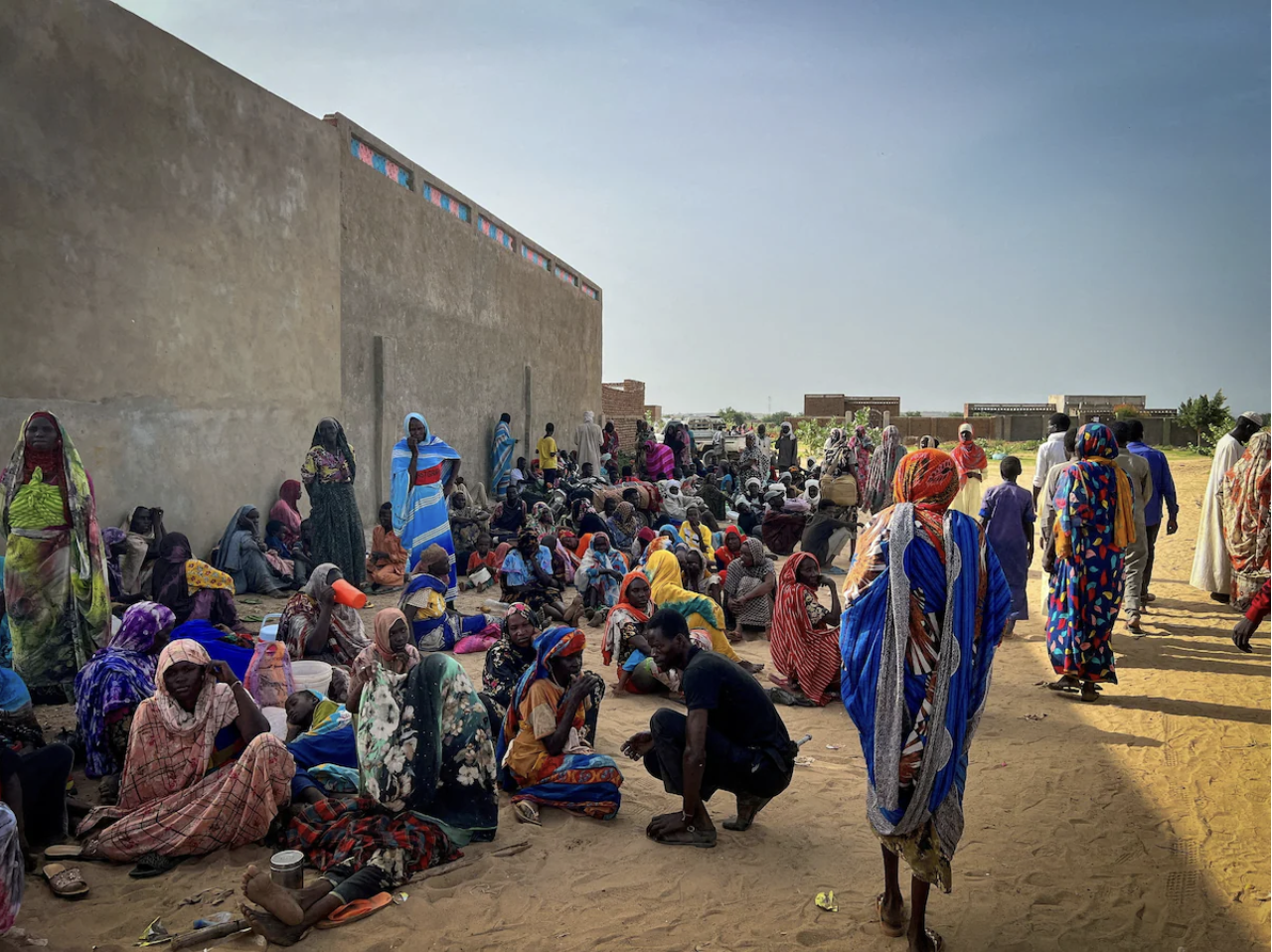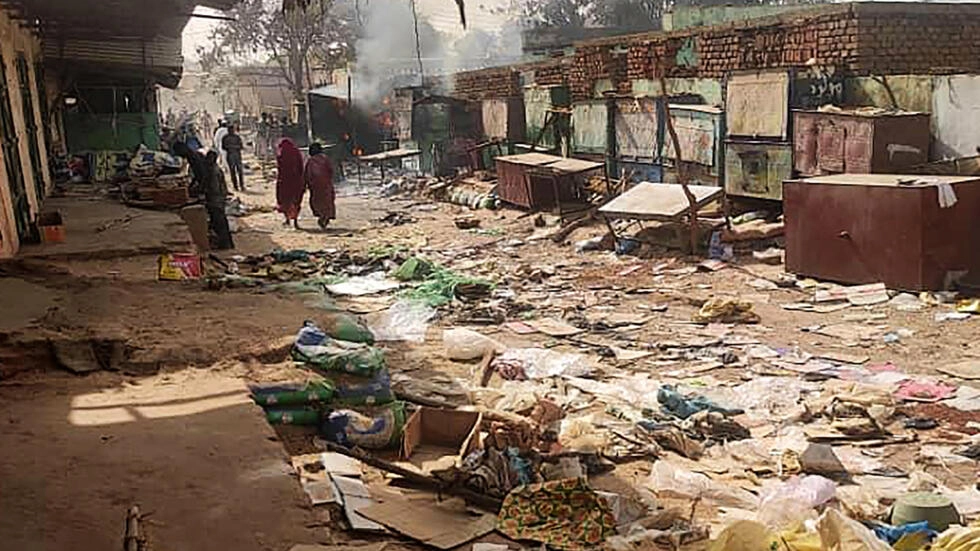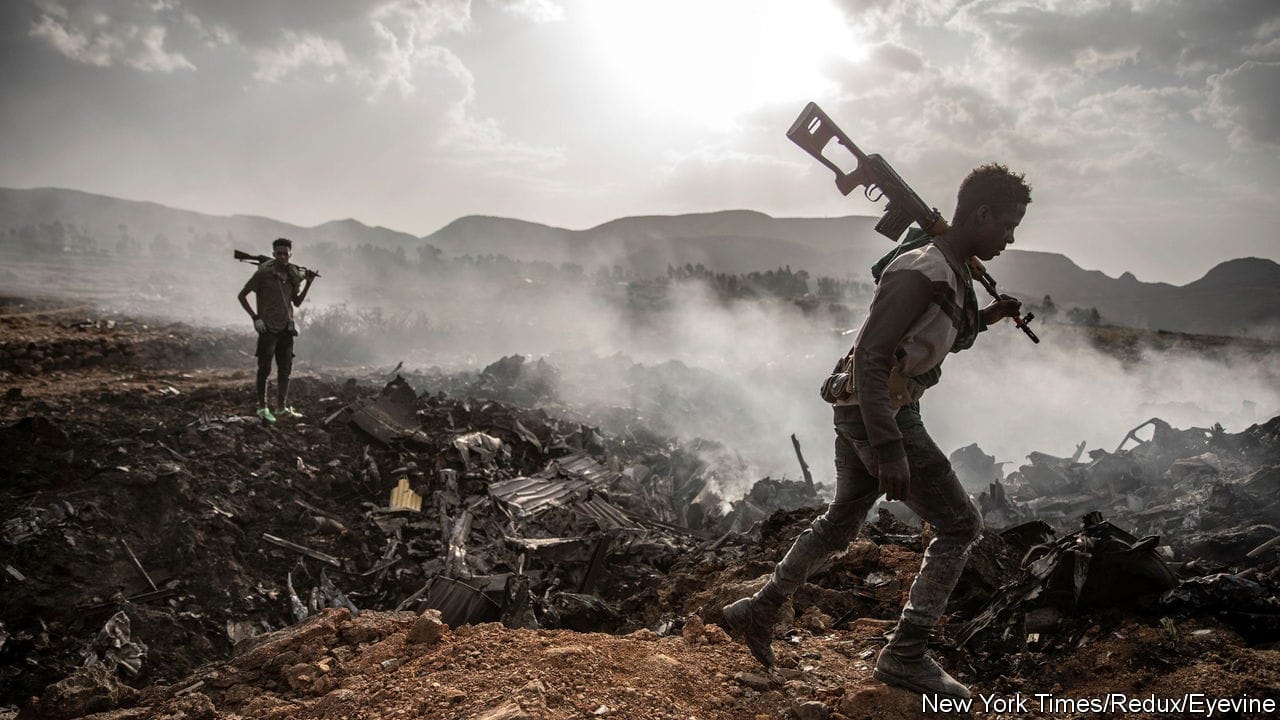This article is more than
1 year oldSudan’s power struggle an ‘existential’ tussle between two generals, two armies
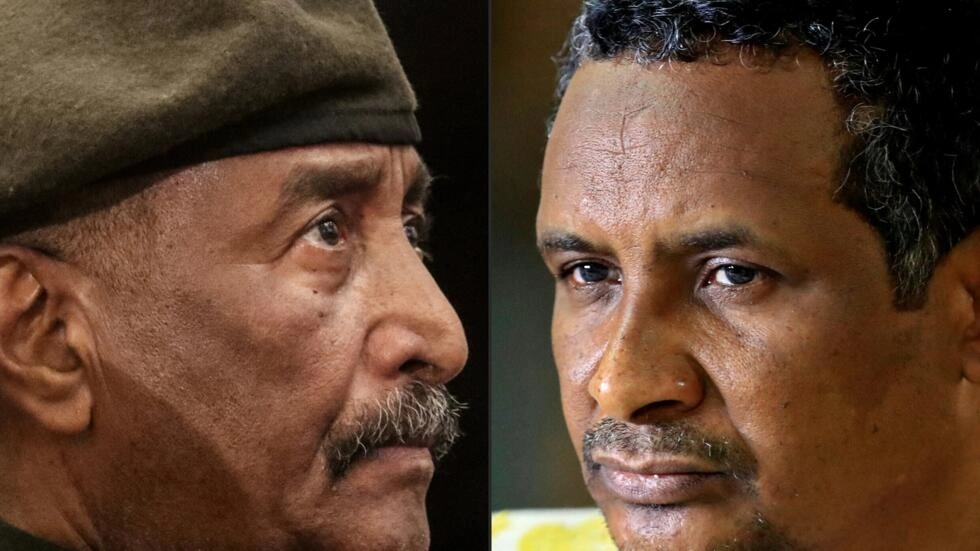
As chaos engulfed Khartoum early on Saturday and bullets rained down on homes including his own, policy analyst Hamid Khalafallah pleaded with his fellow Sudanese to stay out of the fight.
“No matter what, we should NEVER allow this power struggle between (the army) and RSF to turn into a civil war,” he tweeted. “This is NOT our fight, and we are just collateral damage.”
By Monday night, residents of Khartoum and cities across Sudanwere still hunkering down amid fierce clashes between the regular army and a rival force vying for control of the country, with civilian deaths nearing 100 and medics warning that real toll is likely to be far higher.
The deadly fighting is the result of a vicious power struggle between Gen. Abdel-Fattah al-Burhan, the army chief and de-facto head of the country, and Gen. Mohamed Hamdan Dagalo, better known as “Hemedti”, who leads the powerful Rapid Support Forces (RSF), a paramilitary group.
The two generals are former allies, having conspired only 18 months ago to derail Sudan’s short-lived transition to democracy. Since fighting began on Saturday, both men have dug in despite mounting diplomatic pressure, saying they will not negotiate a truce, engaging in verbal attacks and demanding the other's surrender.
As the fighting escalated on Monday, Burhan ordered the RSF to be dissolved, branding it a “rebel” group. In turn, Hemedti called the army chief “a radical Islamist who is bombing civilians from the air”.
The bloodshed marks a deadly setback for Sudan, a resource-rich nation long blighted by kleptocratic rule. It comes just four years after a popular uprising helped depose long-time dictator Omar al-Bashir, inspiring hope in a country strategically located at the crossroads of Africa and the Arab world.
While Sudan has a long history of military coups, the power struggle that has erupted into open warfare is a legacy of Bashir’s policy of divide and rule, said Alan Boswell, Horn of Africa director at the International Crisis Group.
“In the last days of Bashir’s regime he allowed a very fragmented, factional security force to emerge, partly so that none of them were strong enough to overthrow him,” Boswell explained.
“The question all along was would these armed actors be able to refrain from their own hostilities long enough for the country to stabilise,” he added. “Unfortunately, the worst fears seem to have materialised.”
Allies turned foes
The chaos engulfing Sudan stems both from the personal enmity between the country’s two most powerful generals and a structural rivalry pitting the military against what has effectively become a second army.
In October 2021, Burhan and Hemedti together orchestrated a coup, upending a fragile transition to civilian rule that had been started after Bashir’s ouster two years earlier.
Burhan, a career soldier from northern Sudan who rose through the ranks under Bashir’s three-decade rule, took the top job. Hemedti, from Darfur's camel-herding Arab Rizeigat people, became his number two. Theirs was a marriage of convenience dictated by interest and a common foe: the civilian protest movement that has braved violent crackdowns in a dogged fight for democracy.
“They were allies when they were opposed to the civilians running the government, but since the coup in which they both took part they have become increasingly at odds as each side is jockeying for position,” said Cameron Hudson, a senior associate and Africa analyst at the Center for Strategic and International Studies in Washington, DC.
In recent months, negotiations had been under way to get the country back on a path to democracy. Under international pressure, Burhan and Hemedti agreed last December to a framework agreement with political parties and pro-democracy groups. But the deal was vague on key points of dispute, including how the RSF would be integrated into the armed force and who would have final control.
The framework agreement “ratcheted up tensions” when it “elevated Hemedti's position into Burhan's equal, rather than his deputy", Kholood Khair, founder of the Khartoum-based Confluence Advisory think-tank, told AFP.
“That shift in power is why conversations about security sector reform and integration of the RSF have ended up in armed conflict rather than heated debate around the table,” she added.
Ghosts of Darfur
Created in 2013, the Rapid Support Force emerged from the infamous Janjaweed militiamen that Bashir unleashed against non-Arab ethnic minorities in the western Darfur region a decade earlier. They were part of a campaign of terror that resulted in Bashir’s indictment for war crimes, crimes against humanity and genocide by the International Criminal Court.
In 2015, the heavily armed militia was deployed alongside regular Sudanese forces in the civil war in Yemen as part of the Saudi-led coalition. This helped bolster the force and boost Hemedti's profile abroad, giving him enough regional allies to rival Burhan’s. Experts say the force has also been involved in the conflict in neighbouring Libya and nurtured ties with Russia’s Wagner Group.
The RSF has been accused of committing further atrocities at home, in particular as part of a security crackdown after the ouster of Bashir, when rights groups say at least 128 people were killed in a violent dispersal of a Khartoum sit-in in June 2019.
Since then, the RSF has continued to grow stronger – and richer – even as Sudan’s economy faltered. The competition for power and dwindling resources has stoked tensions with the regular army, which traditionally enjoys a stranglehold over the country’s economy, said Marc Lavergne, a Horn of Africa expert at the CNRS in Paris.
“The two forces are locked in an existential struggle for power and for control over resources,” he explained. “Civilians are caught in this tussle between two giants that are destroying one another, at the expense of the Sudanese people.”
‘Not our fight’
Since fighting erupted on Saturday, 97 civilians have been killed and hundreds have been wounded, said the Sudan Doctors' Syndicate, a pro-democracy group, though the number of casualties is thought to be far higher. There has been no official word on the number of fighters killed.
The chaotic scenes of fighting are unprecedented for Khartoum, with tanks, artillery and warplanes operating in densely populated areas of the capital. Fighting has also spread to the war-wrecked western Darfur region and areas of northern and eastern Sudan, near the borders with Egypt and Ethiopia – underscoring the RSF’s extensive reach.
“One of the reasons this is such a nightmare scenario is that both sides have bases across the country, fighting in cities and towns around the country,” said the ICG’s Boswell.
It was an attempt to rein in Hemedti’s force, and bring it under the army’s control, that precipitated this nightmare scenario.
“The RSF is resisting being rolled into the national army, fearful of becoming subservient not only to civilians but also to generals in the army – having their grade, their rank, their salaries reduced,” said Hudson at the CSIS. “This is really about power politics between these two entities.”
The power politics now threaten to plunge the entire country into a protracted conflict, with potentially devastating implications for the wider region.
“Sudan is in the middle of a very unstable region itself, bordering Libya, Chad, the Central African Republic, South Sudan, Ethiopia, Eritrea and Egypt. Obviously instability in Sudan will not stay in Sudan,” said Boswell.
“So if this really falls apart there’s going to be even bigger questions than whether or not we can get civilian rule back in Sudan,” he added. “It will be a proper regional disaster.”
Keywords
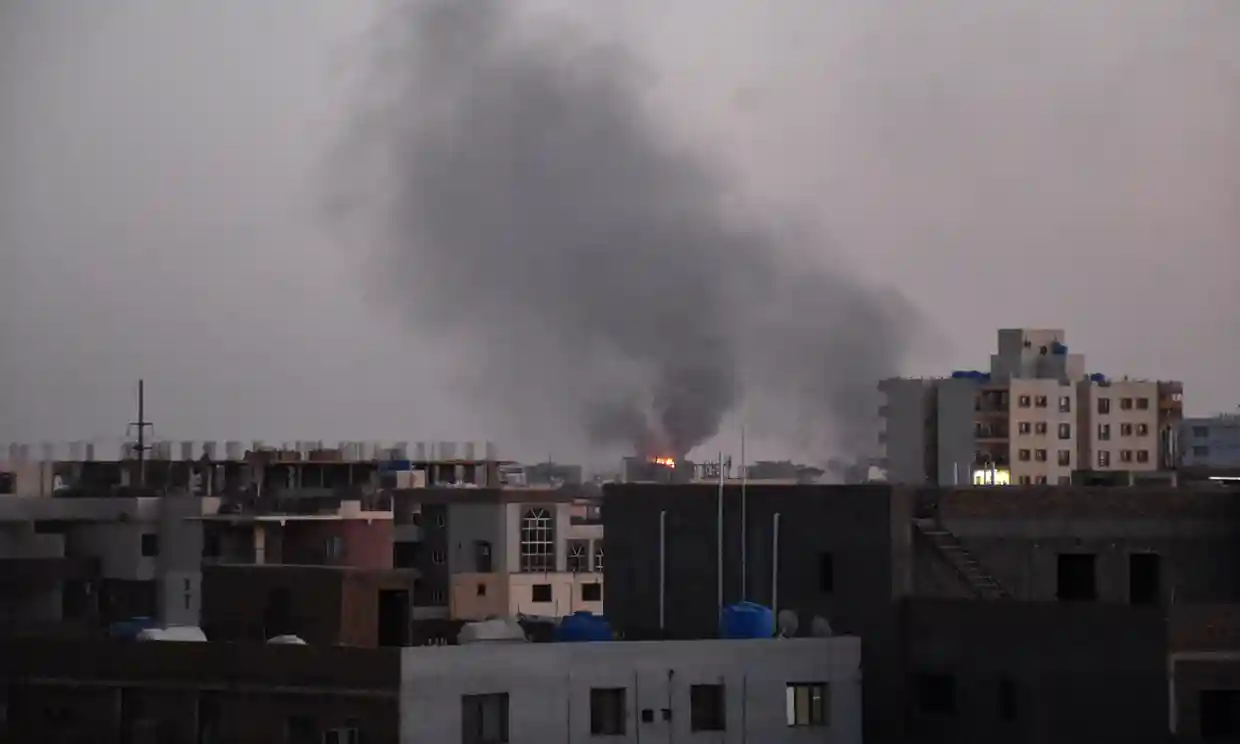
Newer articles
<p>Chinese officials say they "firmly oppose" the platform being divested.</p>
Apple deletes WhatsApp, Threads from China app store on orders from Beijing
Ukraine ‘will have a chance at victory’ with new US aid, Zelenskyy says
Tumultuous Trump trial day ends with 12 jurors, 1 alternate selected
TikTok ban now ‘inevitable’
Israel Iran attack: Damage seen at air base in Isfahan
Israel Launches Retaliatory Strike Against Iran
Who will be Trump’s VP? A shortlist
‘URANIUM’: Terrifying detail about Israel’s strike on Iran emerges
Netflix Password Crackdown Delivers Millions of New Customers
